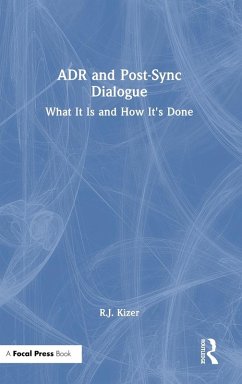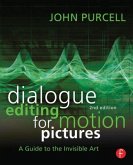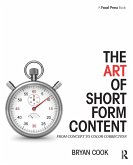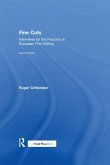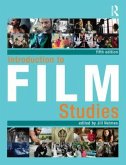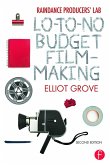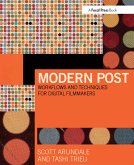Written by industry expert, R.J. Kizer, this is the first book to provide a comprehensive overview of post-sync dialogue replacement, popularly known as ADR.
It explores how this seldom recognised, but essential, technology is used in motion pictures and in fictional narrative television programs, with many examples from past and recent movies to explain approaches and techniques. It is intended primarily as an intuitive book, allowing readers to develop their own interpretation of ADR application, with both historical and procedural background provided throughout. It identifies the many different procedures and mechanical systems invented and used to accomplish the task of ADR, some from as long ago as the early 1920s. The text also details the many different steps, tasks, and routines that must be followed to identify (spot), program, record, edit, and mix the ADR lines into the final sound track of a show.
Intended for the sound professional, it is also suitable for students and entry-level editors wishing to master audio dialogue replacement. Film historians and theorists will also find it both informative and enlightening by illustrating the many avenues used to affect and manipulate the recorded spoken word in motion pictures.
It explores how this seldom recognised, but essential, technology is used in motion pictures and in fictional narrative television programs, with many examples from past and recent movies to explain approaches and techniques. It is intended primarily as an intuitive book, allowing readers to develop their own interpretation of ADR application, with both historical and procedural background provided throughout. It identifies the many different procedures and mechanical systems invented and used to accomplish the task of ADR, some from as long ago as the early 1920s. The text also details the many different steps, tasks, and routines that must be followed to identify (spot), program, record, edit, and mix the ADR lines into the final sound track of a show.
Intended for the sound professional, it is also suitable for students and entry-level editors wishing to master audio dialogue replacement. Film historians and theorists will also find it both informative and enlightening by illustrating the many avenues used to affect and manipulate the recorded spoken word in motion pictures.

